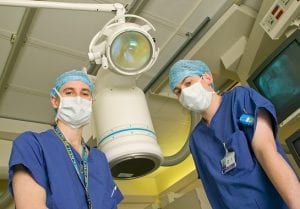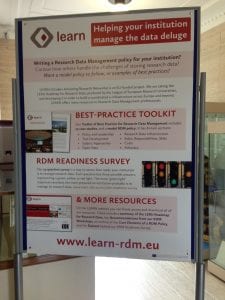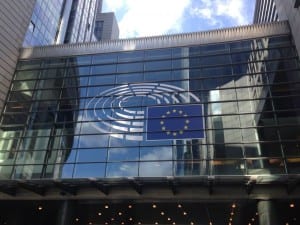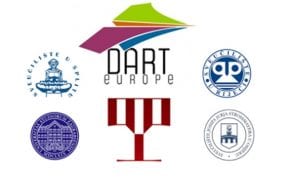The Staff Survey conducted last year showed that only 27% of staff would be “comfortable to speak up and question the way things are done at UCL”. Following the publication of The Director’s View on the LibNet blog, an anonymous comment was received which highlighted two areas of concern. It is not possible to publish the full comment, which falls far short of standards in UCL Dignity at Work’s statement to ensure that “all employees are entitled to be treated with dignity, respect and courtesy”.
However, I would like to engage with the substantive concerns raised, in order to encourage transparent communication between Library staff and managers.
– Why is the Director absent from “the office” during term-time on Open Access assignments?
Why is Open Access important for UCL?
- Publishers of academic journals have been increasing their costs year-on-year in an unsustainable fashion, with key publishers having a virtual monopoly in their subject areas. The lack of competition has led to libraries spending huge sums from the university’s budgets to maintain access to core resources. The UK HE sector spends around £100 million a year on e-resources alone.
- E-resources are the second highest cost in the Library budget
- In the spirit of Jeremy Bentham’s utilitarian ideal to provide “the greatest happiness of the greatest number” and UCL’s founding mission to open up education to those who had been excluded from it, UCL Library Services is leading the way in ensuring that our world-leading research is made freely and publically available around the world.
What is the impact of the Director’s work?
Dr Paul Ayris has been actively engaged in the Open Access movement since the early days of Open Access, articulating the benefits to researchers from a user experience perspective (as in this article from 2005) and the benefits to academic libraries from re-shaping the business model for scholarly communications.
The work which Paul undertakes on behalf of UCL with Jisc, the EU and other partners to promote Open Access is changing the way the market for e-resources works. These changes are strengthening the hand of universities in negotiations with publishers and helping UCL to take control of its expenditure on e-resources. This is done by offsetting Open Access costs against the cost of subscriptions. The combined value of offset agreements to the Higher Education sector in 2015 has already been estimated at £2.5m. This is an important step on the road to transitioning to new business models, where subscriptions disappear in favour of a payment to cover ALL electronic services received from publishers, including Open Access.
Publishers have regularly been increasing their prices above inflation. Open Access changes the paradigm and initiatives like UCL Press are challenging the business model for traditional publishers, which in the long-term will improve the financial sustainability of libraries. Publishers tell us that they will only respond to such challenges where there is global agreement on the need for change. This is why international partnerships and collaborations are so important in effecting a smooth transition to new business models.
It is expected that senior officers of UCL should participate in international initiatives, and UCL SMT members are encouraged to promote UCL’s reputation overseas. In Paul’s absence from UCL, responsibility for operational matters is held by the Assistant Directors, myself and Martin Moyle.
– “cracks are propagating at key libraries – buildings, systems, staff”: senior managers in Library Services should be held to account by the Director
The first term of the new academic year is now well underway, and libraries are busier than ever. It is true that it is a challenging start to the year. Cracks (physical and metaphorical) may have appeared in some libraries. Even worse than cracks, fire blighted Chandler House on the 14th September forcing us to close the LASS Library for four days. It is a stark reminder of how important health and safety is, but also of how unexpected events can impact on our services. But the response by Library Services staff at LASS is also significant: services were restored as swiftly as possible, and the Site Librarian ensured that communication with users was clear and effective, keeping complaints to a minimum. The Library SMT recognises that it is thanks to the work of staff across all our sites and teams that we are held in high regard by users and senior officers of UCL and I would like convey thanks to you for your hard work. As noted above, we welcome your suggestions and feedback on the services we are providing, by sharing these with your line manager. We will shortly be circulating documents to all sites on Customer Service Excellence, to help raise awareness for users of our new Service Charter. Below is an update on the state of the Library. We will continue to update on progress via the blog and our newsletters.

The UCL Main Library features in a new comic book series, Surgeon X. What is the diagnosis?
Staffing
Highs: UCL Library Services staff have sustained excellent services through a period of unprecedented change within the Library over the past 12 to 18 months.
Lows: Following the restructure, we understand that colleagues are still settling into new roles, and areas of responsibility continue to be crystallised in the new organisational structure. This is challenging, and it is acknowledged that change takes time. Also, the new structure has required recruitment to over 70 vacant posts.
What we’re doing: The recruitment drive carried out by the Library Personnel Team will be complete by the end of December 2016, and ensure that our staffing levels return to a stable level.
The Library SMT has agreed an action plan in response to the feedback from the Staff Survey in 2015, which Paul presented at the Staff Conference. Some of these actions have been completed, for instance with the launch of a programme of training for managers in Library Services.
Estates
Highs: The Library Buildings Team and colleagues across sites have successfully delivered a number of major projects, including phase 1 of the Learning Laboratory (Science Library), refurbishment of the Newsam Library and Archives’ reception and Level 3 and the new Special Collections reading room in the South Junction, which is due to open in the coming days.
The New Student Centre has broken ground, and the foundations for the building are being laid now. When it opens in early 2019, the Student Centre will provide 1,000 additional learning spaces for UCL students as well as a central Student & Registry Services help point. The building will be managed by Library Services and will reflect UCL’s commitment to offer an outstanding student experience, founded on excellence in teaching and research.
Low: We are also aware that some estates projects planned for summer 2016 were not completed as planned, due to resourcing issues in other departments. The knock-on impact has been that a number of projects are continuing into term-time, which requires a significant amount of coordination work by Library staff to minimise impact on users.
The challenges associated with estates and facilities management have been discussed at Library SMT meetings. There are short-term challenges to create additional study spaces, which the Library Buildings Team are working on with Estates, and over a hundred additional learning spaces will open in 2016-17.
IT
Systems issues have also been raised at SMT, including challenges with Explore at the start of term and remedial action which is underway with the suppliers. Other IT systems provided by ISD (such as Desktop@UCL) are being improved as part of UCL’s £14M per annum investment in systems described in the Digital Masterplan http://www.ucl.ac.uk/2034/review/excellent-systems/digital-masterplan.
How are we managing?
UCL Library Services continues to perform strongly, in spite of the challenges described above. As mentioned at the start of this section, UCL Library Services staff demonstrate great resilience and commitment in maintaining services, and we continue to receive positive feedback from users on the service they receive. For instance, the UCLU Education & Campaigns Sabbatical Officer described the Library as a department which “cares about students”. That view is absolutely reflective of the attitude of Library staff, and the foundation on which the work towards Customer Service Excellence accreditation is based. Customer service training has started and will continue in the coming weeks for the Library Leadership Team and the Main and Science teams. This is the beginning of a programme of training for staff across Library Services. I would emphasise that there is already excellent practice in Library Services – a claim supported by National Student Survey scores which, in some sites, reach a lofty 100% satisfaction with the Library. The exercise of seeking CSE accreditation provides us with a framework to share and extend best practice across Library Services, and to ensure consistency across the service.
Furthermore, to illustrate the performance of the Library in supporting UCL’s ambitions to transform how knowledge is created and shared, UCL Press is highlighted in UCL 2034’s interim review, as an example for “Delivering global impact” http://www.ucl.ac.uk/2034/review/global-impact/why-we-post
In terms of governance, it is the case that senior managers are accountable for their areas of responsibility. SMT is the forum where senior managers are accountable for operational matters, reporting to the Director as Chair, and each Key Performance Area leader also reports on progress at the Leadership Team, where progress is monitored against each KPA action in the Library Strategy.
Approved minutes for both committees are available for all Library Services staff to read at https://www.ucl.ac.uk/libnet/committees/smt and https://www.ucl.ac.uk/libnet/committees/leadership
Filed under Communication, Outreach and Open Science, European Developments, Finance, management information and value for money, General, Research Support, Staff, Equality, Diversity and Inclusion, Sustainable estate, Systems, Collections & Processes, User experience, Widening Participation & Public Engagement
11 Comments »
 Close
Close








